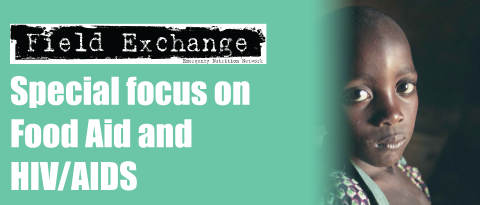Early Exclusive Breastfeeding Increases HIV Survival
Summary of published paper1
The promotion of exclusive breastfeeding (EBF) to reduce the postnatal transmission (PNT) of HIV is based on limited data. The recently published ZVITAMBO study in Zimbabwe has carefully defined, measured and categorised infant feeding patterns, linking this to HIV status and health outcomes. Non-breastfed infants were not included in the study. Of note, while HIV tests were done on these women, most chose not to obtain the results - which was the norm when the study was conducted a few years ago. Thus this study is effectively measuring behaviour among HIV+ mothers who do not know their status, which is currently the situation for the vast majority of mothers who are HIV+2.
In the context of a trial of postpartum vitamin Asupplementation, education and counselling about infant feeding and HIV was provided while information was prospectively collected on infant feeding practices, and measured associated infant infections and deaths.
A total of 14 110 mother-newborn pairs were enrolled, randomly assigned to vitamin A treatment group after delivery, and followed for 2 years. At baseline, 6 weeks and 3 months, mothers were asked whether they were still breastfeeding, and whether any of 22 liquids or foods had been given to the infant. Breastfed infants were classified as exclusive, predominant, or mixed breastfed.
A total of 4495 mothers tested HIV positive at baseline. Of these, 2060 of their babies were alive, polymerase chain reaction negative at 6 weeks, and provided complete feeding information. All infants initiated breastfeeding. Overall PNT (defined by a positive HIV test after the 6-week negative test) was 12.1%, 68.2% of which occurred after 6 months.
Compared with EBF, early mixed breastfeeding was associated with a 4.03 (95%CI 0.98,16.61), 3.79 (95%CI 1.40-10.29), and 2.60 (95% CI 1.21-5.55) greater risk of PNT at 6, 12, and 18 months, respectively. Predominant breastfeeding was associated with a 2.63 (95% CI 0.59-11.67), 2.69 (95% CI 0.95-7.63) and 1.61 (95% CI 0.72-3.64) trend towards greater PNT risk at 6, 12, and 18 months, compared with EBF.
The authors conclude that EBF may substantially reduce breastfeedingassociated HIV transmission.
Recently produced training materials (Module 2 for health and nutrition workers in emergency situations) detail support of exclusive breastfeeding in the challenging environment of emergencies. They support Module 1 material, both of which are available in print from ENN, and online at http://www.ennonline.net
1Early exclusive breastfeeding reduces the risk of postnatal HIV-1 transmission and increases HIV-free survival. Peter J. Iliff, Ellen G. Piwoz, Naume V. Tavengwa, Clare D. Zunguza, Edmore T. Marinda, Kusum J. Nathoo, Lawrence H. Moulton, Brian J. Ward, the ZVITAMBO study group and Jean H. Humphrey AIDS 2005, 19, 69-708. The full text version of this article is available by joining the WABA HIV and Infant Feeding Yahoo Group (see news piece this issue)
2Comments drawn from Pro-Nut HIV communication, Ted Greiner, 14 April 2005
Imported from FEX website


